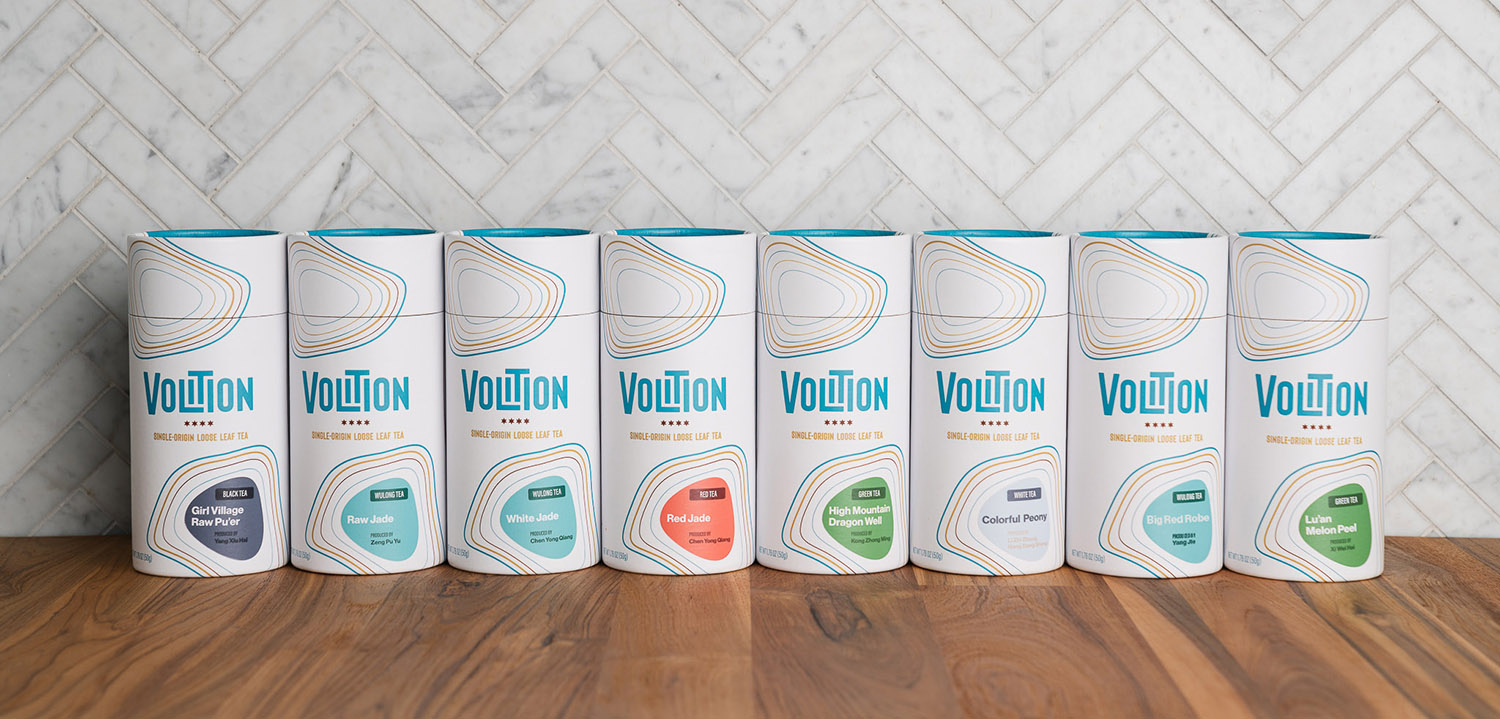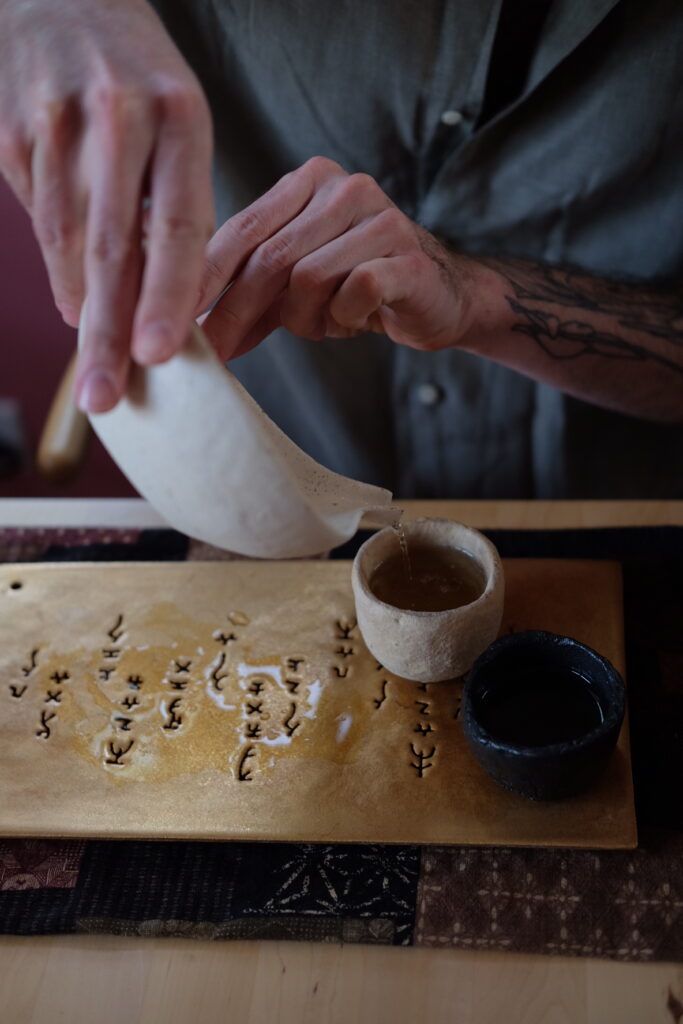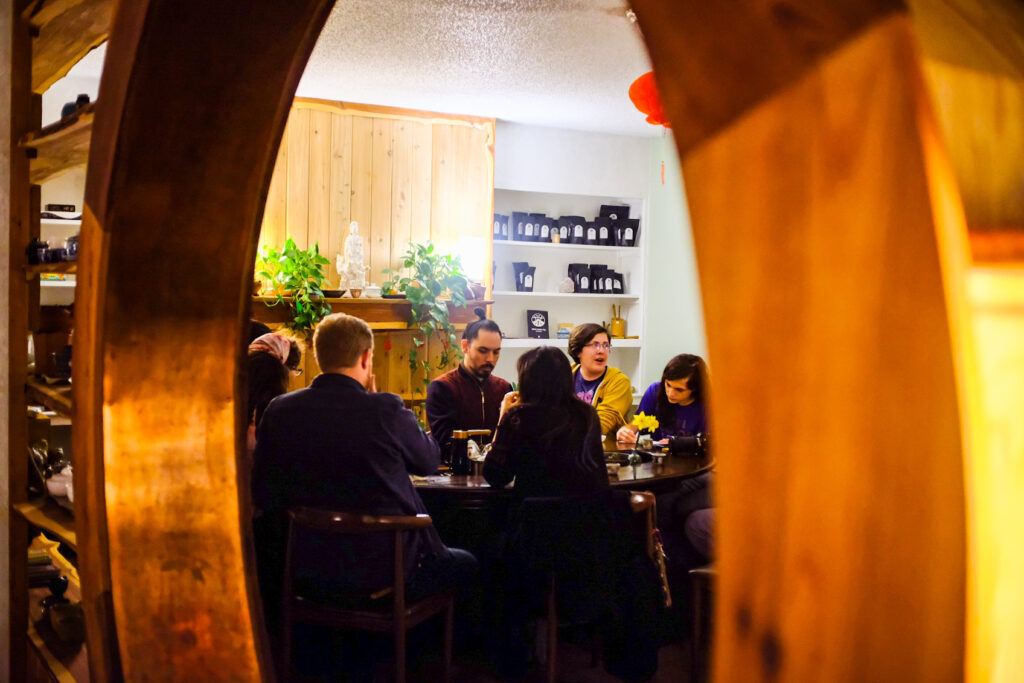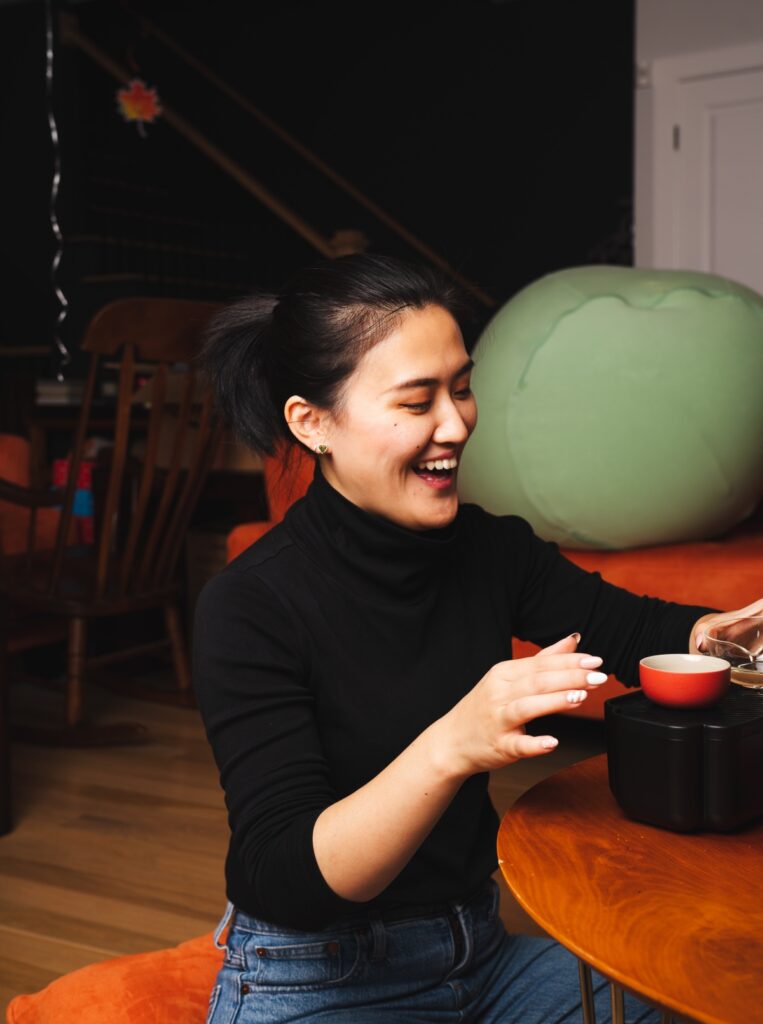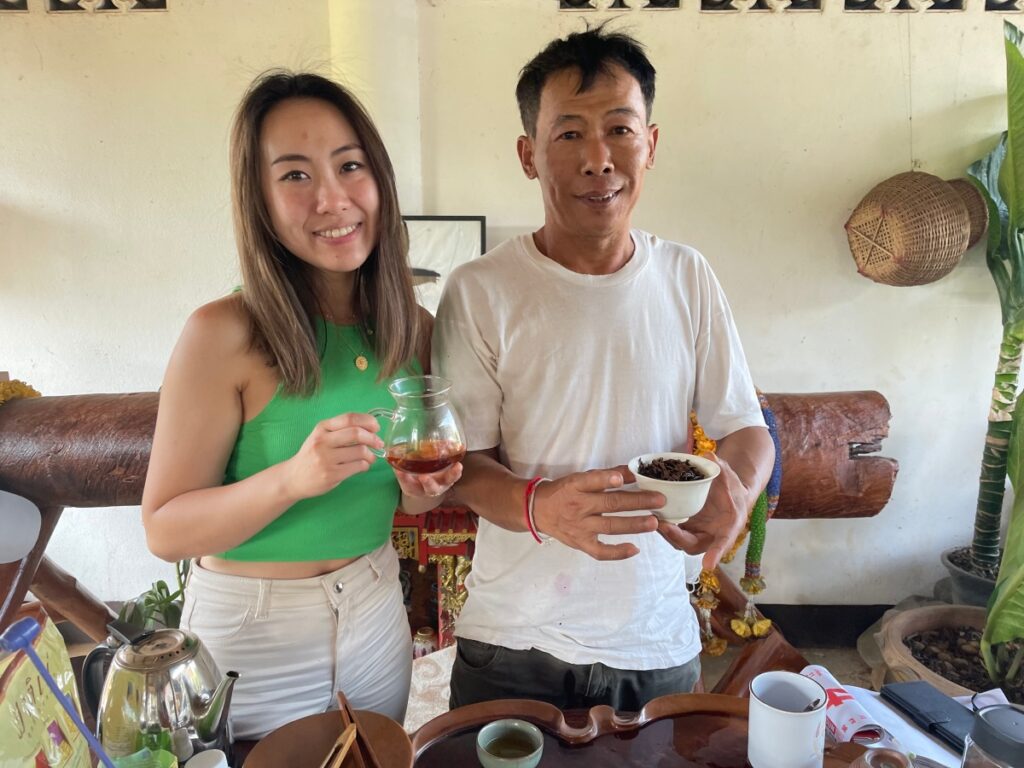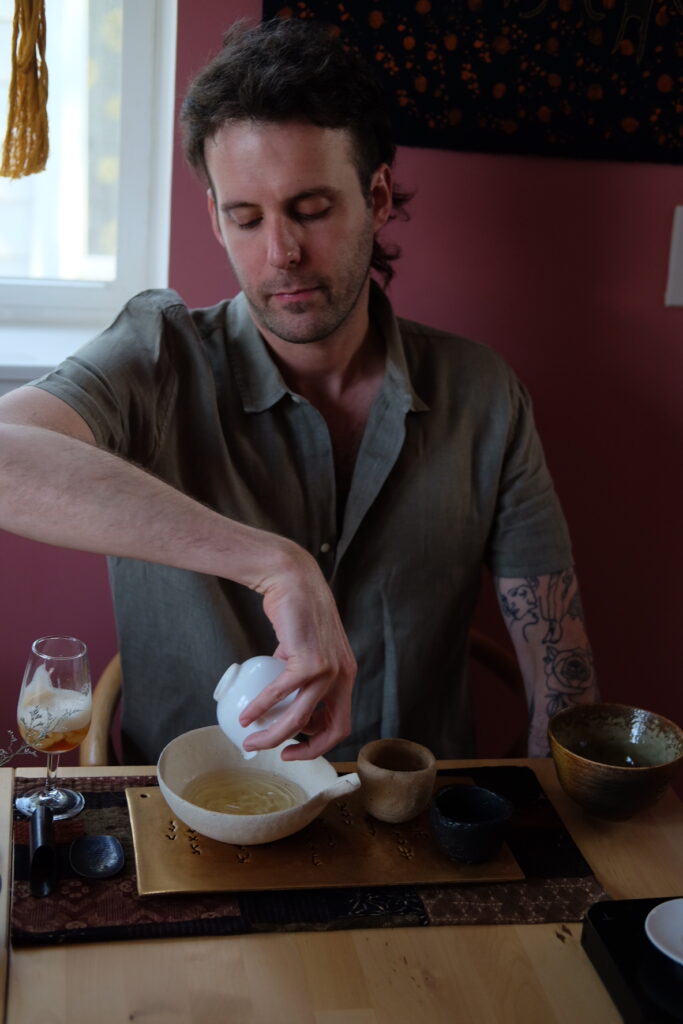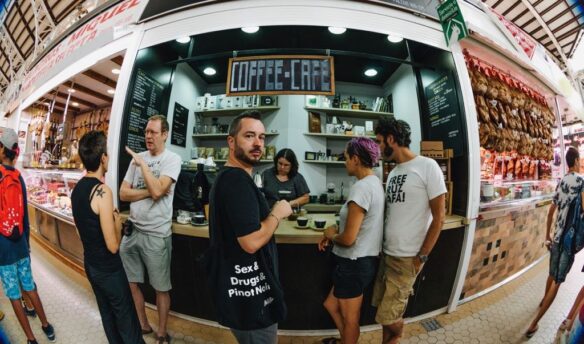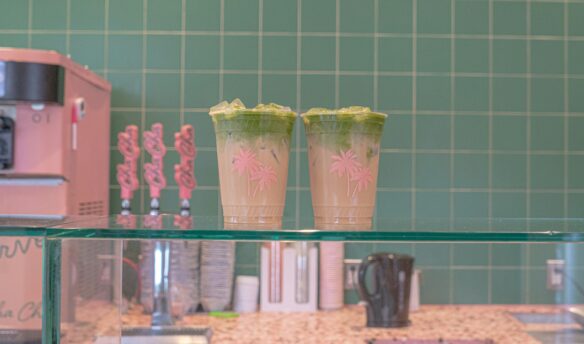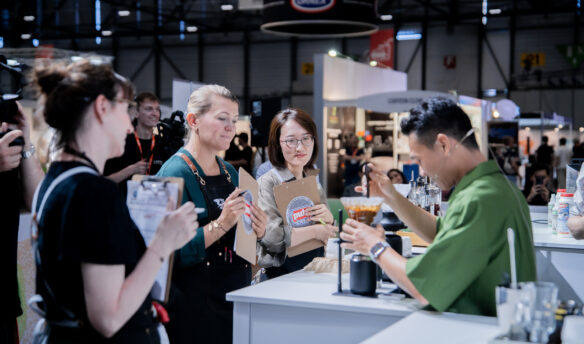Traditional loose leaf teas are hardly rare in the US. For a long time, importers have brought teas from places like China, Taiwan, and Japan to the American market. This is particularly true in big cities like New York and San Francisco.
Yet most American tea drinkers still mainly drink Lipton tea bags or flavored/scented teas. Even many specialty coffee shops’ tea programs can be an afterthought compared to their coffee programs, mainly offering flavored teas like Earl Grey or Jasmine Green.
This gap between a shop’s coffee and tea programs is not an issue. Yet the generic nature of many tea programs in cafés does reflect the larger American tea drinking culture. Song Tea founder Peter Luong states: “You go to a grocery store, you find tea bags that cost just a few dollars for a pack of 40—that is very much the vast majority of the current market for tea here. Because of that, there’s a perception by vendors and sellers at origin that the American palate means Americans want lower-grade teas in the first place.”
But the past decade has seen a newer crop of quality-minded tea importers/vendors. They resolutely focus on single-origin, farmer-direct loose leaf teas. Sprudge editor Jordan Michelman dubs them the “progressive wing of the American tea scene.” For these importers, Michelman quips, “selling flavored black teas is like spraying award-winning coffee with artificial hazelnut.” While they would love to introduce single-origin teas to coffee shops, their more immediate concern is simply to bring higher-quality teas to the US.
In the past few years, craft tea brands like Spirit, Song, and Hugo Tea have become familiar names in specialty coffee shops (particularly in the Midwest, where I’m based). Here are other smaller vendors that may be less familiar to coffee folks. As this piece is written belatedly in honor of AAPI heritage month in May, the vendors featured here are all AAPI-owned. Each, in their own way, is reclaiming and rewriting the narratives surrounding tea in the US. In doing so, they indirectly or directly challenge tea’s Western-colonial legacy of keeping it cheap and anonymous.
West China Tea
West China Tea was founded in 2012 by So Han Fan. Born to a Chinese father and a Jewish mother, Fan became tea-obsessed during his studies in Santa Cruz, California. After spending two years visiting numerous tea regions in China, Fan moved to Austin, TX, and founded West China.
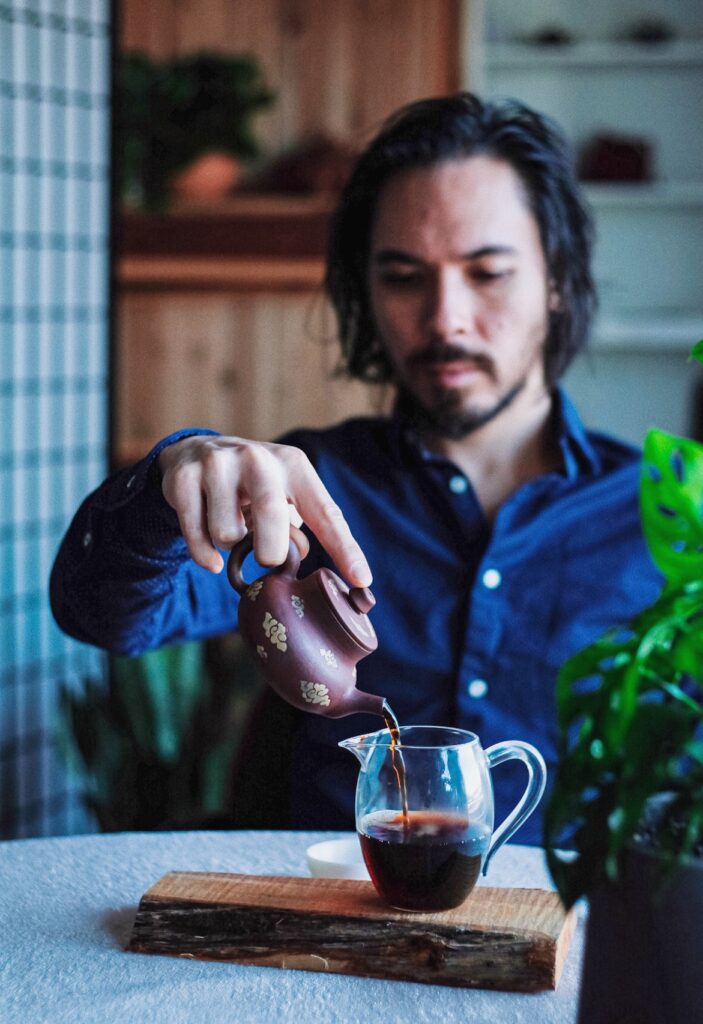
The company offers farm-direct teas from China and Taiwan, making sure to list the farmers’ full names. The company’s small herbal offerings are traditional Chinese herbal teas, like chrysanthemums, with the producers’ names also mentioned.
While West China supplies teas to a few coffee shops, Fan has not ventured too much into selling to specialty cafés. He told me over Zoom that he was simply too busy handling other parts of West China, including running a tearoom. So he’s had “no time to reach out” to different coffee shops and take care of tasks like “answering a lot of emails.” Fan also thinks that café owners may find his offerings to be “much more expensive” than they are perhaps used to paying for teas.
The more I talked with Fan, the more I understood why craft tea can be a tricky fit in coffee shops, pricing issues notwithstanding. For him, the speedy rhythm in many US coffee shops makes learning and appreciating tea more challenging.
While a café’s tea program can still be intentional, it is tricky to fully implement a slow, traditional gong fu cha-style brewing. The modern American coffee shop usually serves tea that is only steeped once—at most twice—either with a tea bag or an infuser. Gong fu cha brewing, on the other hand, highlights different layers of a tea through multiple, shorter steeps in smaller brewing vessels. Fan believes “you can’t steep tea just one time.” Some teas like aged pu erhs—highly sought-after fermented teas from Yunnan—can go through as many as twenty steeps.
The underlying idea behind gong fu cha brewing is intentional tea appreciation by slowing down. It is admittedly a difficult concept to apply at a fast-paced café. For Fan, “there’s no substitute for educating your customer at a teahouse.” If you live in Austin or are just passing through, you can reserve a table at West China’s traditional Chinese-style tearoom, which boasts over 130 teas to choose from.
Volition Tea
The newest company on this list, Chicago-based Volition Tea has only been around since October 2021. Volition’s founder Annie Xiang was born in Urumqi, the capital of China’s far northwest Xinjiang Uyghur region. Xiang’s early childhood memories of drinking tea were brews made of black teabricks and yak milk. I was fortunate to meet and chat with her over a bright, floral Colorful Peony white tea. A huge part of our conversation centered around Volition’s visual identity.
We’re very used to—and perhaps beginning to rally against—minimalist coffee branding. However, this branding style in tea can still seem novel. Volition’s branding and packaging—designed by Kam Wang of Bluetiful Design—betray much attention to detail.
As she explains her branding choice in an Instagram post: “We are not here to perpetuate the impact imperialism had on tea culture. So we won’t be luring you in with crazy serif font, or fancy afternoon [European] tea setup (emphasis in original).”
For Xiang, identity issues surrounding tea wouldn’t seem as urgent in China because the country already has its “own sufficient, large tea market that is very little tamed by the Western market,” she says. The US context, however, is entirely different: “We are here [in the US], standing in the convergence of Western tea influences with Chinese tea, so we have to navigate these identity issues.”
Volition is careful to avoid Orientalist tropes—depictions of the East through a Western lens. Xiang chooses a bold sans-serif typeface in lieu of quasi-Chinese-looking scripts. The bold type immediately gives Volition a modern look. If anything, Xiang doesn’t necessarily want the brand to look like a tea company and instead derives more inspiration from surf culture in Santa Cruz, CA. The typeface serves as a visual aid to Volition’s focus on the farmers, whose full names are always given on the retail packaging. She half-jokes that, if asked, she would “give the address to the village—you’ll be able to find [the farmers].”
In the same spirit, Volition often showcases tea brewing on its social media using gaiwans. For her, this is not just a form of cultural pride but a counter to European colonial narratives surrounding tea.
Serene Tea
Serene Tea was founded in Seattle in 2019 by Guangzhou native Jingyi Huang, who goes by Rainy in English. Rainy first got hooked on tea when served Dan Cong Oolong by a tea farmer in Phoenix Mountain, a famed oolong region not too far from her hometown.
While specializing in Chinese teas, especially oolongs, this year, Rainy began branching out to Thailand, a developing craft tea region. After sampling teas from a Chinese-Thai couple, Rainy visited their farm in Wawee Village, near Chiang Rai, in March of 2022.
Unfortunately, she experienced an incident of gatekeeping by an owner of a larger American tea importer when trying to purchase from the farmers in Wawee. Over a blog post and an Instagram Live video, Rainy detailed her experience of the incident.
According to the farmer, the importer, who Rainy refers to as “Jack,” became “angry” when he found out about Rainy’s visit and planned purchase. Per Rainy’s blog, the farmers told her that there was a verbal agreement that they “are not allowed to sell any of their pu erh or sun dry black tea” to importers selling to US consumers. In response, “[Jack] messaged [the wife] in a hostile manner after midnight …and the couple stayed up till 4am to come up with a solution to this dilemma,” Rainy writes.
Seeing the farmers’ distress, Rainy tried to mitigate the situation by buying only their white teas. But Jack also wouldn’t let the farmers sell those teas to her. While not wanting to out Jack, she feels the story deserves to be told more widely: “This is my personal experience and I feel the need to be transparent with you, so to let you, a conscious tea drinker and a responsible consumer know about the dark side in our industry,” she writes. “It could affect not just you, or me as a small business owner, but most severely, the tea farmers.”
This incident speaks to the potential power imbalance between a farmer and a Western buyer in a lesser-known tea-growing region like Thailand. Rainy hopes that her work in Thailand will counter that exploitation. Over email, she explains her interest in Thailand in greater detail: “The Thai tea market is greatly under-appreciated…since education is a big part of our principles, I felt the need of making this part of the tea world[…] known to our tea drinkers. The Thai tea farmers also feel the need to step into the global tea world[.]”
In contrast, Rainy hasn’t encountered an instance of a Western tea buyer bullying a Chinese tea farmer. As she describes, this market is akin to “an A-list star of tea Hollywood.” With a robust local market, “Western buyers only make up a fraction of what [Chinese tea farmers] sell…The Chinese farmers decide who to sell to and what to sell on the conditions of whether they like you or whether you buy a lot or not [.]” In other words, Western tea buyers “have no ‘power’ in China.”
Ultimately, Rainy was able to source teas from a different farmer in Wawee. You can purchase them here. The Wawee raw pu erh release is appropriately named “No Exploitation” in both English and Thai.
Reclaiming Tea
At their best, progressive tea importers, both Asian-owned and not, are humbly mindful of the vast culture and history of tea’s native regions. We in the West need tea, but tea doesn’t need us. Regions like China, Japan, and Taiwan already have robust networks of local aficionados ready to pay exorbitant prices. As Michelman has stated, “the cultures that grow [tea] most revere it, and typically keep all the good shit close to home.” Importer Taylor Cowan from Spirit Tea told me, while steeping a nice Himalayan Snow Curls, that he’s careful not to use the phrase “our tea,” To him, the importer’s role is to curate, not possess.
Over Zoom, Marco Namowicz echoes the same sentiment. A tea blogger for Steapd Tea, Namowicz believes the crucial part of tea is “not about the person pouring the tea.” Like wine, much of the work in tea is done at the farm level, and many progressive tea vendors value and foreground that labor, both in established and emerging tea regions. Importers like Fan, Xiang, and Rainy are doing impressive sourcing work for the US market. Concurrently, their work also poses crucial questions on the colonial heritage (and neo-colonial specter) behind a cup of tea in the West.
Along with the importers mentioned above, here are a few other tea brands that spotlight the work of farmers, including Us Two Tea, Kettl, Liquid Proust, and Kong Mountain Tea.
Mikey Rinaldo (they/them) is the roaster/founder of New Math Coffee, a Chicago-based roastery focusing on specialty Asian producers.
Correction 6/28/22: An earlier version of this article included a misspelling of one of our sources. We apologize for the error.



